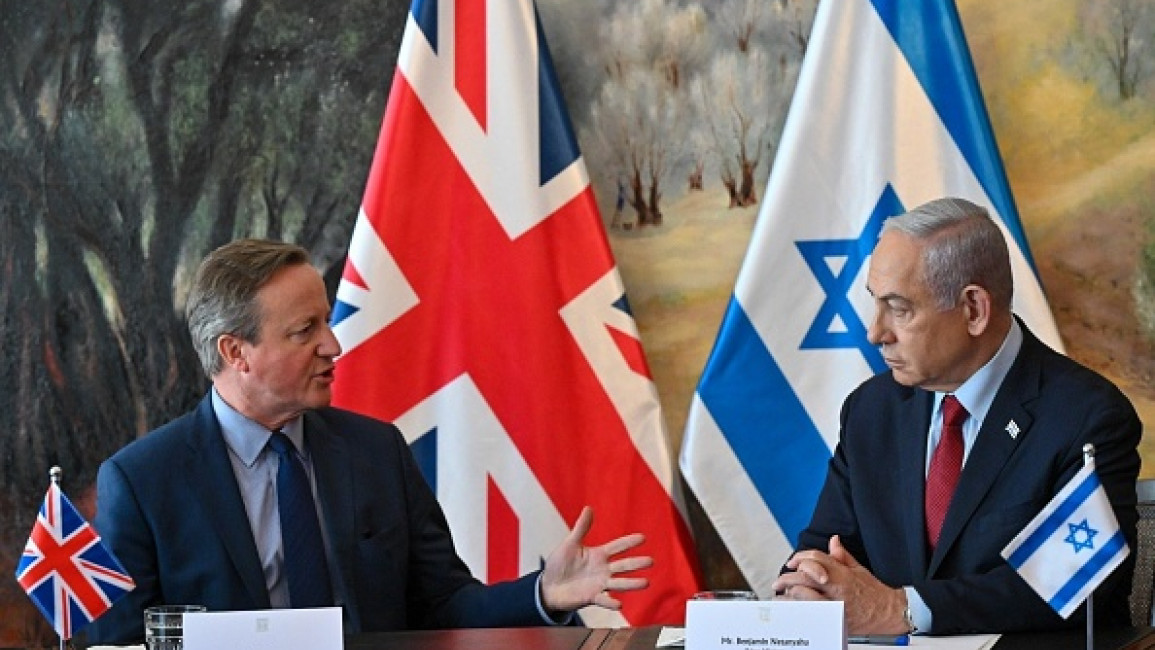UK won't stop weapons sales to Israel despite deadly Gaza war: David Cameron
The British government has concluded it can keep sending weapons to Israel, Foreign Secretary David Cameron said on Tuesday, rejecting pressure to suspend exports over charges of humanitarian violations in Gaza.
"On Israel and international humanitarian law, and as required by the UK's robust arms export control regime, I have now reviewed the most recent advice about the situation in Gaza and Israel's conduct of their military campaign," Cameron said on a visit to Washington.
"The latest assessment leaves our position on export licenses unchanged," he said.
"Let me be clear, though, we continue to have grave concerns around the humanitarian access issue in Gaza," he told a joint news conference with US Secretary of State Antony Blinken.
The United States, by far the largest provider of weapons to Israel, has also rejected calls to suspend shipments despite rising frustration with Prime Minister Benjamin Netanyahu's conduct of the war.
Israel's military onslaught in the territory has killed 33,360 Palestinians since October 7, mostly women and children. Tel Aviv has also carried out atrocities akin to war crimes and genocidal actions, as it also continues to deprive Gazans of basic needs such as water, food and fuel.
Three Britons and one US-Canadian dual citizen were among seven aid workers for World Central Kitchen who were killed last week in an Israeli strike, which the military called an accident.
In a recent letter, more than 600 British lawyers, including former Supreme Court judges, said that Britain risked breaching international law by exporting weapons to Israel.
Britain's strategic licensing criteria states that weapons should not be exported when there is a "clear risk" they could be used in international humanitarian law violations.
London has approved over 487 million pounds ($614 million) of weapon sales to Israel since 2015 in so-called single-issue licences, while companies export more under open licences, according to arms control groups.
Another key weapons exporter to Israel, Germany, is facing a case in the International Court of Justice in which Nicaragua says that Berlin is in breach of the 1948 United Nations Genocide Convention set up after the Holocaust.
Germany said that Nicaragua has "grossly distorted" its record and that support of Israel lay at the core of Berlin's foreign policy.


![President Pezeshkian has denounced Israel's attacks on Lebanon [Getty]](/sites/default/files/styles/image_684x385/public/2173482924.jpeg?h=a5f2f23a&itok=q3evVtko)



 Follow the Middle East's top stories in English at The New Arab on Google News
Follow the Middle East's top stories in English at The New Arab on Google News


